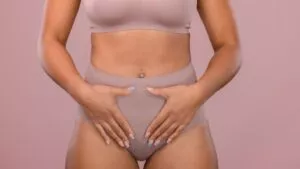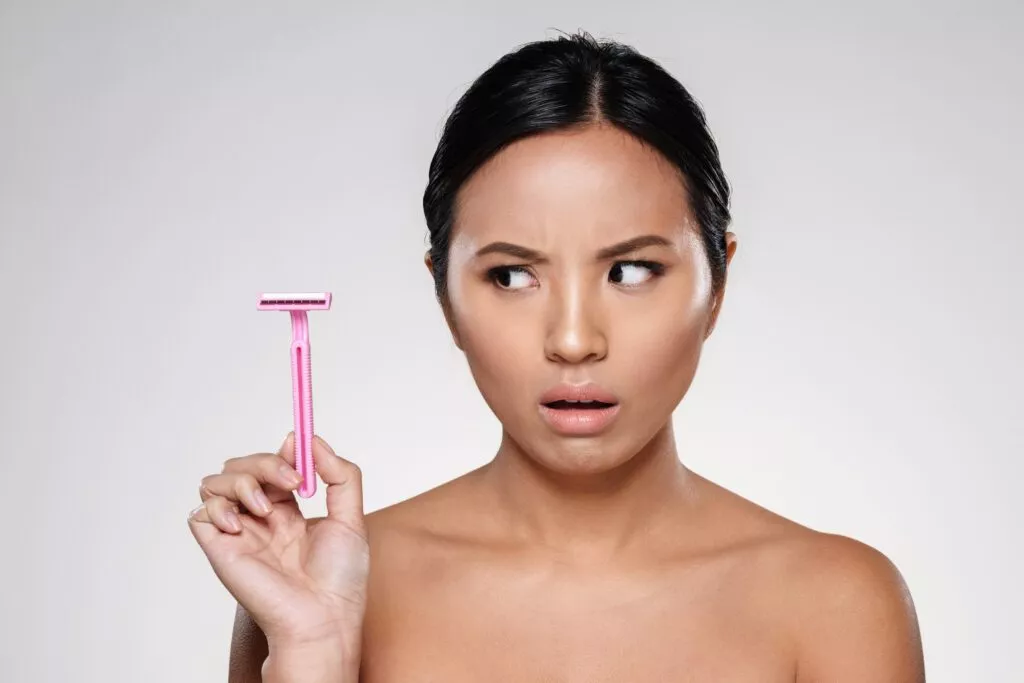
Why do women with PCOS get hirsutism?
HAIR-AN syndrome
Thus, this could also be, the potential cause of Hirsutism.
Does Hirsutism stop after reversing the PCOS?
Management:
- Management of hirsutism involves addressing the androgen excess that has been caused due to Insulin Resistance. Thus, interventions to decrease hirsutism in PCOS include the suppression of androgen excess by enhancing Insulin sensitivity.
- Proper diet (low carb, high protein, and, moderate fat), Losing weight, Regular exercise (moderate intensity), and lifestyle modifications are some ways to be practiced that would help decrease the resistance and improve the insensitivity.
- Insulin causes theca cells (of ovaries) to generate and release androgens directly or indirectly. It stimulates androgen synthesis in the ovary and inhibits or reduces the development of sex hormone-binding globulin (SHBG) in the liver. (Haigang Ding et al.) Inhibition of SHBG results in free testosterone (more than normal) in the blood and thus cause cutaneous manifestations like hirsutism, acne, and alopecia (male pattern baldness).
- Inés Domínguez-López et al. in the Journal of Nutrients correlated the positive effect of consumption of Phytoestrogens on improving the sex hormone-binding globulin (SHBG) expression by liver cells, enhancing estrogen and progesterone synthesis in ovaries. The sources include flax seeds, sesame seeds, peaches, soybean, tofu, wheat bran, etc.
- Medical management- Oral Contraceptive Pills (OCPs) are commonly used for the suppression of excess androgens. Insulin sensitizers like Metformin have also been shown to reduce hyperandrogenism and hyperinsulinemia in women with PCOS.
How to get rid of the excess hair?
- Mechanical (shaving, bleaching, or chemical depilation of hair) or Cosmetic means.
- Laser treatment- which includes permanent destruction of hair follicles.
- Electrolysis – where a thin wire is inserted under the surface of the skin and an electric current (minimal) is passed down the wire leading to the destruction of the roots.

In conclusion, discussing PCOS with your doctor can help you better understand your condition and take proactive steps to manage your symptoms. By asking the right questions, you can work with your doctor to develop a treatment plan that works best for you. Remember to be honest and open with your doctor about your symptoms, concerns, and goals. With the right information and support, you can successfully manage your PCOS and live a healthy, fulfilling life.
Here are some other Blogs that you should check

Foods to increase the breast milk
Breastfeeding is an extremely crucial period for both mother and baby. It provides the baby with essential nutrients and antibodies while helping the mother bond

How to improve Hemoglobin during Pregnancy
Pregnancy is a time of profound change in a woman’s body, with various physiological adjustments necessary to support the growing fetus. One crucial aspect of

Top 10 Mistakes in Weight Loss and Intermittent Fasting.
There is a lot of talk about Intermittent fasting these days. Intermittent fasting has become a popular and effective strategy for many people aiming to

How to Balance Hormones for Weight loss
When it comes to weight loss, most people often focus on diet and exercise. They meticulously count calories, track macros, and spend hours at the

Difference between PCOS & PCOD
Polycystic Ovarian Syndrome (PCOS) and Polycystic Ovary Disease (PCOD) are two terms often used interchangeably, but they represent distinct conditions with unique characteristics. While they

Role of Antioxidants in Gut Health
In our body’s complex system, the gut plays a central role in orchestrating various functions essential for overall health. Recent breakthroughs in scientific research have

